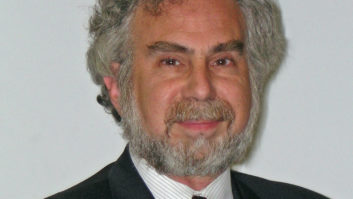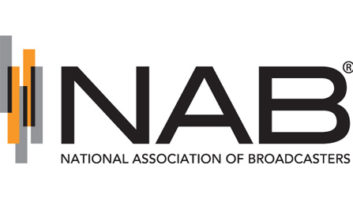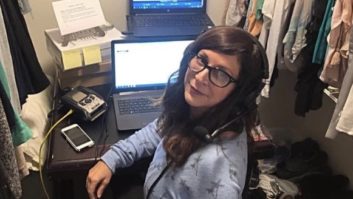Big voices continue to call for elimination of the main studio rule, among them the National Association of Broadcasters.
In a filing with the Federal Communications Commission on whether stations must maintain a main studio near its community of license, the NAB said the rules were unwarranted in relation to the way we communicate today, limit broadcaster’s ability to deploy resources elsewhere and do little to ensure that a station will remain connected to its community of license.
The NAB’s voice is riding a wave of big broadcaster sentiment against the main studio rule, among them National Public Radio, Univision and Cumulus Media.
Rather than assuming that a physical location will ensure licensee involvement, it should be left to marketplace conditions to push stations to engage regularly with their local communities, the NAB said.
The NAB is one of several organizations and large broadcasting groups to point out that the main studio rules were put into place 80 years ago; today, the NAB said, widespread use of electronic communications means that communities can communicate effectively with their stations without the need for a physical presence of a studio.
The NAB hauled out examples: It quoted one general manager who reported that in 39 years, only one person has come to see the public file at one group of stations’ main studio. When one adds that to the fact that stations no longer need to keep a public correspondence file at the main studio, the NAB said that elimination of the main studio rule will have no impact on stations’ connection to their local communities.
“Stations will continue to have strong incentives to know and understand the needs and interests of their communities of license, and the public will continue to interact with their local stations in ways that are not dependent upon the existence of a studio — using social media, telephone, email, letters and websites maintained by both stations and the FCC,” the NAB said in its filing.
Eliminating the main studio rule will also allow broadcasters to determine the most efficient way to operate their stations — whether that is maintaining their current studio or making changes such as deploying staff differently.
Directly addressing those commenters who said elimination of the main studio rule would negatively impact their ability to deliver local programming and services, the NAB said it would instead allow broadcasters to reallocate funds and staff to improve community engagement and coverage of local news and events.
The NAB also believes that a telephone staffing requirement is not necessary and would be unduly burdensome, particularly for smaller stations. Instead, the NAB said, stations should be required to maintain a local or toll-free number.
But other organizations, from REC Networks to individual listeners, have expressed the exact opposite, saying that elimination of the rule would be the final nail in the coffin for anything that resembles real local radio service.
“I have been in small market broadcasting full time for over 40 years, and time and time again I have seen small towns lose their radio stations to corporate interests who move control to nearby regional centers,” said one listeners from Minnesota. “Oh, they say they’ll continue use to serve the needs of the community but it doesn’t happen.
“Radio’s very existence depends on stations serving their local communities, offering programming they can’t get anywhere else,” he said. “Moving the studio completely out of a community certainly does not help to achieve that goal.”
Reply comments are still being accepted on the main studio issue through July 17. Commenters should go into the ECFS database using MB Docket No. 17-106.












